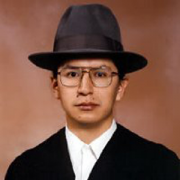Director, Runajambi (Institute for the Study of Quichua Culture and Health)
Former Henry R. Luce Professor in Culture, Brain, Mind, and Medicine, Claremont Colleges, California
Facing-off Latino Oppressors
It was rainy and cold in the valleys of the Andes. A tough hacienda mestizo (Latino) overseer on horseback was whip-lashing Rosa Cachimuel, forcing her to accept a hundred-pound sack of corn, for which she would be forced into debt to the landowner. Forcing their Quichua laborers into debt allowed the latino landowners of Ecuador to subdue their Quichua workers and their families into life-long serfdom.
My mother has told me how my father’s grandmother, with a fierce combination of fear and pride, managed to hold on to the overseer’s whip and to throw the sack of corn back at him, saying; “Take your corn and bring it to your master. Tell him that I will never give my children away to be your servants.” She only had one functional arm; she had lost her right arm to an untreated infection.
The courage of my father’s grandmother has always been an inspiration to me.
My Parents Resilience
My parents’ family history has been characterized by their continuous struggle for freedom and their efforts to build a decent life for themselves and their children. Like the stories of First Nations’ families elsewhere in the Americas , our family history was one of dispossession, abuse, and intense discrimination by the mestizo ruling class in Ecuador.
My earliest memories of my mother and father are of their hard work, love and support of their family, and of their trying to protect us from the constant bigotry, cruelty and hostility of mestizos in our town of Otavalo, in the Ecuadorian Andes.
For my parents, education was of paramount importance. My father and mother were among the first few Quichuas in their region who went to school. My father was one of the best students in the high school (Colegio Mejía) he was able to attend in Quito, the capital of Ecuador. However, he was eventually forced to quit, in his fifth year, because of unbearable humiliation, verbal abuse and beatings inflicted on him daily by his latino classmates.
Despite being subject to intense and constant discrimination and intimidation, my parents succeeded remarkably in life and in their innovative family business. They became the first Quichuas to own a house in Otavalo, a mestizo town. They were the first to own a mid-size family business, and to have mestizo employees, to buy a car, and to be able to send their children to college in Quito .
In this environment, and aware of their struggles and accomplishments despite obstacles put in their way by the dominant latino group, I felt compelled to succeed in school.
My parents encouraged and supported me to enroll in medical school. I was the first Quichua student in the School of Medicine in Quito, at the Universidad Central del Ecuador. When I was in the fifth year (of seven) of my medical studies, I enrolled in the philosophy program at the Universidad Católica del Ecuador. By the end of my seventh and final year of medical school, I was quite reluctant to settle down and open a private practice in our hometown of Otavalo, as my father was encouraging me to do.
Understanding and Responding to a Hostile Social Environment
After becoming a medical doctor at the age of twenty-four, I felt a strong need and drive to learn more by going further afield. I spent four years working with the Quichua communities in the Andes . My work was in part clinical, in part political, and in part epidemiological. It was an enriching period of my life. I got to know many fascinating Quichua people: community leaders, peasants, artisans, herders, patients, traditional healers, and foreign volunteer workers.
It was also a hectic period in my life. At age twenty-five, I was nominated to become a member of the national legislature, the National Congress of Ecuador, which I refused.
In 1984, my wife and I founded the first Quichua health institution, Jambihuasi, a small organization that promoted culturally sensitive health care services for the remote Quichua villages of the Andes. The services we offered were a collaborative effort between Yachactaitas (Quichua healers) and medical personnel (including a physician, a dentist and health educators). Quichua people, in addition to foreign volunteers and mestizos, comprised the staff of Jambihuasi.
The project was well accepted and much appreciated by the local communities. Twenty-one years later, Jambihuasi has received the support of the United Nations, has been featured by many national and international media, including ABC News, has been the subject of several peer reviewed papers in academic journals of public health, and has established collaborative relationships with American and European universities.
During this period, I met Lise, who was to be my wife, and we had our only daughter, Sioui.
My Graduate Studies in Montreal, Canada
In 1986, Lise and I decided to further extend our education and world view, by moving to Montreal , Canada to pursue our graduate studies, and to ensure a quality education and healthier social environment for our daughter, Sioui, than was possible at that time in Ecuador .
I was very fortunate to have Dr. Raymond H. Prince as my advisor for completing a Master’s degree in Psychiatry at McGill University. At the same time, I enrolled in a graduate diploma program in Community Medicine at the Université de Montréal.
I was fully immersed in learning both the French and English languages, and learning about the English-Canadian and Québec cultures. Those formative years were spent mainly in a French milieu. My wife, a Montreal-born Quebecoise, facilitated my integration in Québec society. Sioui, who was starting to say some words in Quichua, quickly became a French-speaking child. French became the language of our home.
Later, I started a Ph.D. program at the Université de Montréal in psychiatric biomedical sciences, with a focus on pain and ethnicity.
While doing fieldwork in Ecuador for my Master’s and Ph.D. research, in 1990, Lise and I founded Runajambi; the Institute for the Study of Quichua Culture and Health. It was the first Quichua health institution in Ecuador devoted to the study of the physical and mental health of the First Nations of the Andes .
During the final years of my graduate training in Montreal, my wife and I developed a consulting firm in transcultural medicine. We also contributed extensively to, and created a section on transcultural medicine, in L’Omnipraticien, a medical magazine targeting French-speaking general practitioners ( family physicians ) in Québec.
Developing an Academic Career in the U.S.A.
In 1994, I had the exceptional opportunity to visit and work in a short postdoctoral training with Dr. Keh-Ming Lin , Professor of Psychiatry at UCLA, and director of the NIMH Research Center on the Psychobiology of Ethnicity. He introduced me to the American academic culture. His generosity and academic excellence inspired me deeply.
In 1998, I was offered a unique academic position; the “Henry R. Luce Professorship in Brain, Mind, and Medicine: Cross-Cultural Perspectives” at The Claremont Colleges, in Claremont , California. I spent six wonderful years of academic work there. Again, my family was immersed in a different culture and struggling to become proficient, now in English, our fourth language. Sioui, my daughter, did the best. In just 3 months, she was speaking English quite fluently! What a difference from her more linguistically fossilized parents.
The journey of my family across countries, languages, and cultures, naturally led me to consider the role of social and cultural factors in health and disease. I always thought dispossession, oppression, and racism explained, in considerable part, the mental health problems of the First Nations of the Americas.
Discovering the WPA - Transcultural Psychiatry Section
With this background, I found it extremely appealing to participate in the scholarly activities of the Transcultural Psychiatry Section of WPA. I approached the Section in 2001, and I soon felt like I was among friends who supported my ideas and encouraged my work. Their friendship, scholarship, and generous spirit have captivated me, and have helped me cope with the loneliness of several moves to unfamiliar environments during my adult years.
Now, I find myself working in collaboration with colleagues from around the world. A few months ago, I was invited to become a member of the WCPRR Editorial Board and Regional Advisor for Ecuador, which I accepted enthusiastically. And only recently, I learned of my election to the Executive Committee of the Transcultural Psychiatry Section of the World Psychiatric Association, which I am happy to participate in and contribute to in whatever ways possible. My enthusiasm grows even further with the recent creation of the World Association of Cultural Psychiatry and the prospect of my participation in the 1st World Congress of Cultural Psychiatry, in Beijing in September 2006.
More information about my academic, research, and clinical work is available at
April 5, 2006

